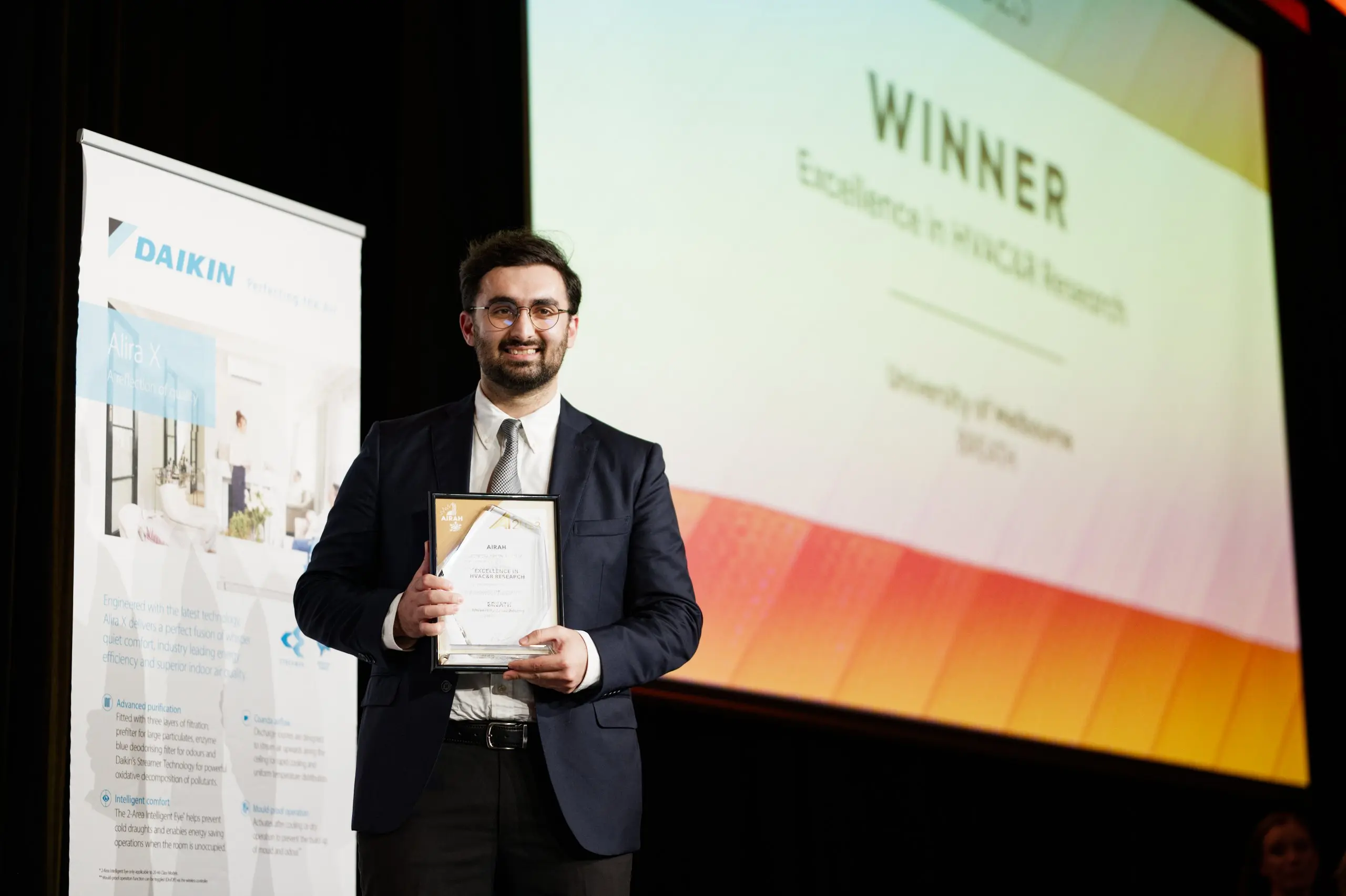Research team wins national Excellence Award for improving ventilation systems for infection control

A team of University of Melbourne engineers has been awarded the prestigious Australian Institute of Refrigeration, Air Conditioning and Heating (AIRAH) ‘Excellence in Heating, Ventilating, Air Conditioning and Refrigerating Research’ award. The award recognises a significant breakthrough in understanding and improving ventilation systems to improve indoor air quality.
The AIRAH Excellence Awards are widely regarded as the pinnacle of national recognition in Australia’s building services industry.
The winning project, BREATH, was a collaborative venture with the City of Melbourne and industry partners, including AG Coombs, Cbus Property, Aurecon and Westaflex, centred on ventilation strategies tailored for infection control. The team began their project during the COVID pandemic lockdown period and announced their findings in July 2022.
Led by graduate researcher Poorya Shaghaghi from the Department of Mechanical Engineering in the Faculty of Engineering and Information Technology, the BREATH team includes Department Head Professor Jason Monty and members of the Fluid Mechanics Research Group, research engineers Dr Kevin Kevin and Liam McGregor, research scientist Dr Grant Skidmore and wind engineer Max Rounds.
The team tested three different ventilation systems in a vacant CBD building over three months: displacement ventilation air conditioning, in-ceiling air filters and natural airflow through open windows. Displacement ventilation air conditioning – which supplies air from floor level – was the most effective and energy efficient system tested, reducing COVID-19 transmission by 83 per cent, while also reducing energy consumption by 20 per cent.
“BREATH has given us the knowledge to predict the best type of retrofit to simultaneously reduce carbon footprint and infectious disease transmission," Professor Monty said.
"Since the majority of city energy costs go to ventilation of our buildings, the outcomes from BREATH will improve our ability to reach net zero carbon faster."